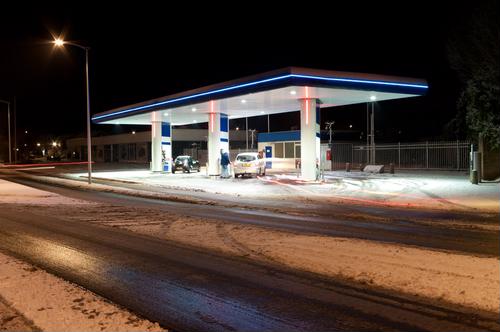Fresh off the revelation that the Consumer Price Index climbed 7.5% in January — a 40-year high — the CPI grew at any even faster clip a month later, up nearly 8% compared to 12 months ago, the Labor Department announced. The last time inflation experienced such a jump was back in 1982.
The report comes mere days after the average price for a gallon of gas reached an all-time high. For the week ending March 7, the average cost for a gallon of unleaded regular was $4.10, according to the Energy Information Administration. That's up from $3.60 during the last week of February and $2.77 a year ago.
Sam Bullard, an economist at Wells Fargo, told investors that supply chains are taking hits from several directions, including developments in international affairs.
"The Ukraine-Russia conflict will only further stress supply chains, including agriculture and energy, and thus continue to add inflation pressures over the coming months," Bullard said, according to USA Today.
While much of the data collected for the CPI occurred before the invasion, the cost of energy has been on a steady incline for well over year, only recently taking a more dramatic turn higher. Indeed, as CNBC pointed out, energy prices were up 3.5% in February on a year-over-year basis, accounting for approximately one-third of the 7.9% upsurge.

Although the Consumer Price Index examines how much more — or less — everyday Americans are spending for their basic needs, rising inflation takes a toll on business owners as well. Because the economy largely runs on oil — used to make plastics, heat buildings and power transportation methods, among other uses — operational expenses rise when fuel prices increase. Furthermore, supply chains are impacted by the ripple effect fuel costs have on production processes as well as consumer demand. With less discretionary income available, buyers may buy less or stop purchasing certain items entirely, leading to demand volatility. In light of the hostilities in Eastern Europe and how they're affecting gas prices, economists expect the CPI to maintain or increase its growth rate in March.
Joel Naroff, chief economist at Naroff Economics, told The Wall Street Journal that the war in Ukraine comes just as the supply chain issues caused by COVID-19 were subsiding.
"We thought that inflation would come down, especially due to the untangling of the global supply chain," Naroff said. "[B]ut we don't know how what's happening in Ukraine will re-tangle that."
In the meantime, the Federal Reserve is poised to raise interest rates as a means to bring inflation under control, a move that will likely occur at its next meeting. Speaking to the Senate Banking Committee, Fed Chair Jerome Powell said business owners, consumers and industry stakeholders should expect inflation to persist, "at least for a while," the Journal reported.



Post A Comment:
0 comments so far,add yours